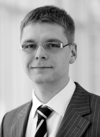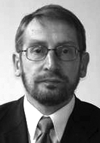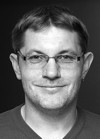Russia’s Regional Possibilities and Global Ambitions
In the Riigikogu Toimetised (RiTo) conversation circle on 23 May four experts, Undersecretary of the Ministry of Foreign Affairs Sulev Kannike, Consultant of Logistics and Transit Association Andrus Kuusmann, Member of the Riigikogu Jevgeni Ossinovski (Social Democratic Party) and political scientist from the University of Tartu, Project Manager of the Academic Centre for Baltic and Russian Studies Karmo Tüür discussed the development of the Russian Federation during the last two decades. RiTo Editor-in-Chief Helle Ruusing acted as the moderator and compiled a summary of the discussion.
The participants in the conversation circle were of the opinion that one of the most important landmarks in the development of Russia during the last twenty years was the constitutional crisis of 1993; after which a new constitution was drawn up in a hurry. It was a superpresidential constitution that has largely dictated the subsequent political development of Russia. One of the peculiarities of this development are the powerful non-constitutional institutions headed by the presidential administration, which by Boris Yeltsin’s second presidential term had become more important than other institutions. The developments of that time have in some respects made possible the simplicity with which President Putin quietly started to centralize his power in 2000, and by now the system started by Yeltsin has almost been brought to perfection. Trying to find an answer to the question: „What is the weight of the Russian state in today’s world?”, the participants in the conversation circle were of the opinion that although in the case of Russia we are dealing with not only a permanent member of the UN Security Council, but also an important nuclear state with huge territory, its present actual capacity in having a real say in global processes is rather doubtful. At the same time Russia has considerably increased its economic capacity, first of all thanks to selling energy resources. However, modernising of economy first of all requires changes in thinking, and the adopting of the principle of more openness and cooperation, and less centralisation, bureaucracy and corruption.




